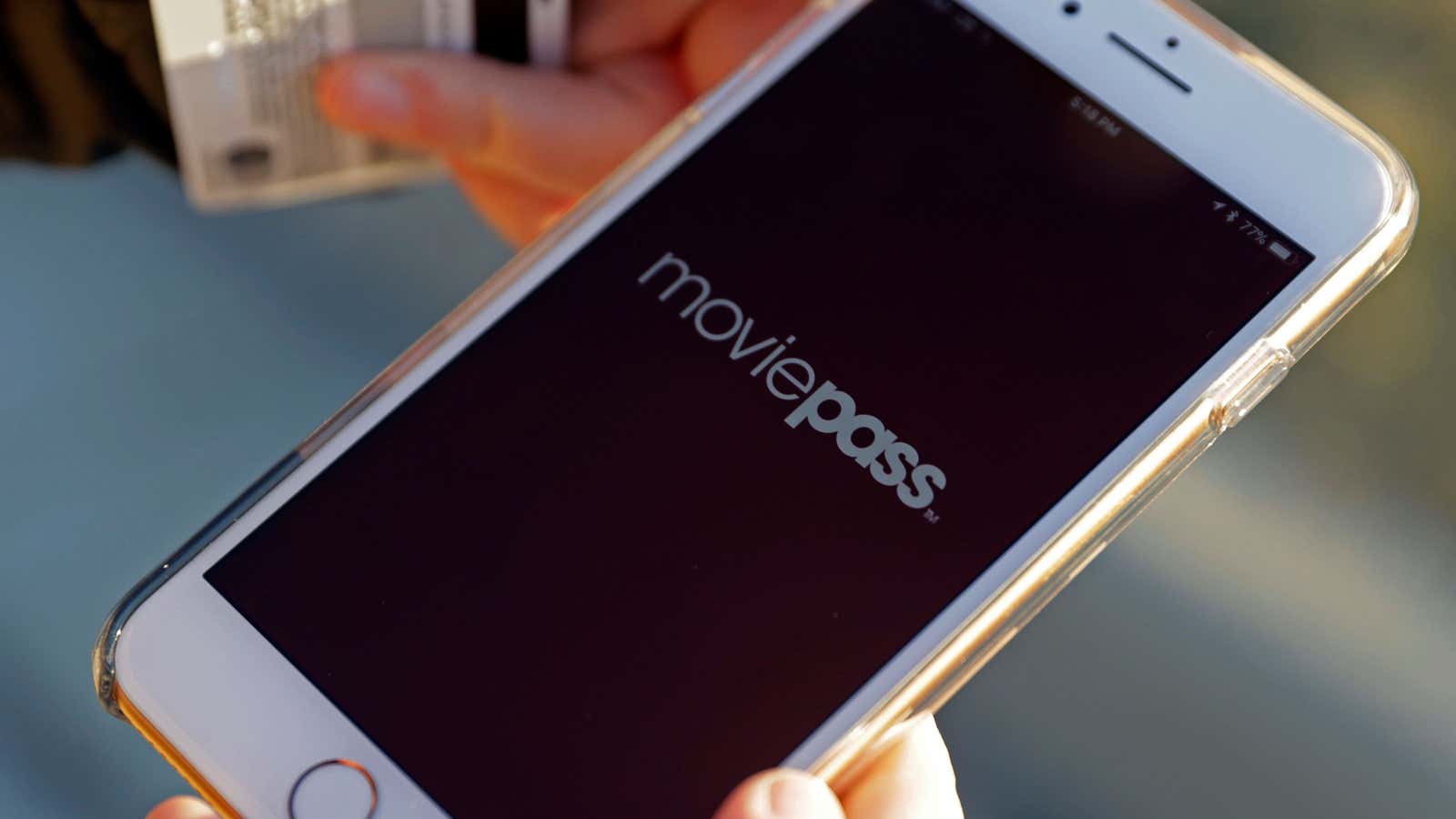Ted Farnsworth, the CEO of MoviePass’s parent company, is seeing his compensation dwindle alongside his company’s market performance.
Shares of Helios and Matheson Analytics nosedived over the last year, thanks to a troubled acquisition of a majority stake in movie-ticket subscription company MoviePass, which hemorrhaged money while struggling to find the right offering at the right price.
Shares of Helios closed at $2,282.50 on Dec. 11, 2017—including the impact of a July 2018 reverse stock split—and are now worth little more than penny.
Farnsworth has felt the stock collapse, alongside investors, as he is compensated mainly in stock awards. In 2017, he was awarded $7.25 million worth of company shares, which was about 80% of his total $8.9 million compensation that year. As of Dec. 8 of this year, those shares were worth $49.50, the company reported in a filing on Dec. 10.
Farnsworth couldn’t sell most of those shares if he wanted to. Many of his awarded shares are in lock-up—which would prevent Farnsworth for selling or transferring them—for 18 to 24 months after stockholders approved the awards, the filing said.
In 2017, Helios also paid Farnsworth $225,000 in salary, a $1.35 million cash bonus, and $76,050 in housing costs. He was also awarded 8,213 shares, which have not yet been approved by shareholders, or granted. They’d be worth roughly $135 if granted now, based on the Dec. 8 stock price used by the company to calculate Farnsworth’s other stock awards.
Per the filing, Farnsworth’s base salary will now be $325,000 a year, and he is eligible for a cash bonus of around 25% of his salary, and stock awards worth 200% of his salary. He also gets a bonus if Helios’s market capitalization reaches $100 million, which it is far from doing. Its market cap is currently around $33 million, based on Sentieo data.
Farnsworth joined Helios in 2016, after his tech company, Zone Technologies (which created an app that maps crime in neighborhoods) was acquired by the New York-based consulting firm. He became CEO of Helios in January 2017 and led the acquisition of a majority stake in MoviePass that year. He locked down a five-year employment contract with the company before the MoviePass deal closed, in December of 2017, according to the filing.
